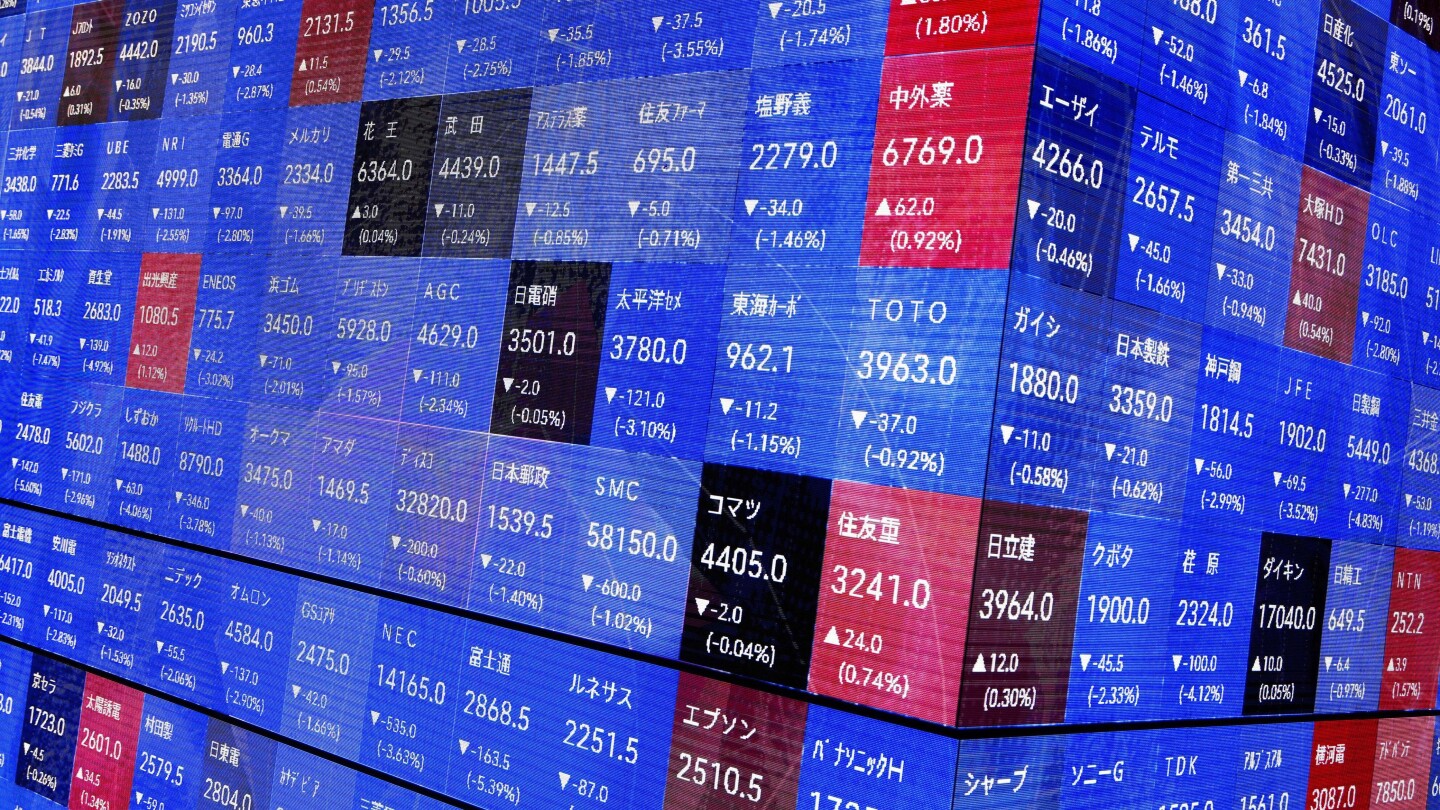Asian shares were mixed on Wednesday as investors weighed the impact of President Donald Trump’s tariffs following another day of losses on Wall Street. U.S. futures and oil prices were higher. Trump’s escalation in his trade war briefly pulled the S&P 500 more than 10% below its record set last month after he increased tariffs against Canadian steel and aluminum. This move prompted the Canadian province of Ontario to remove a surcharge that had angered Trump.
Japan’s benchmark Nikkei 225 gained 0.2% to 36,880.79 in morning trading. Hong Kong’s Hang Seng gained 0.3% to 23,845.37, while the Shanghai Composite edged down nearly 0.1% to 3,377.95. Australia’s S&P/ASX 200 dropped 1.7% to 7,756.90. South Korea’s Kospi added 1.5% to 2,575.39.
On Wednesday, the S&P 500 fell 0.8%, taking the main measure of Wall Street’s health to a close 9.3% below its all-time high. The Dow Jones Industrial Average lost 1.1% to 41,433.48. The Nasdaq composite slipped 0.2% to 17,436.10.
Such volatile moves are becoming routine as Trump tries to reshape the country and world through tariffs and other policies. Stocks have been mostly declining due to uncertainty about how much economic pain Trump is willing to endure to achieve his goals.
“Trump’s tariff policies continue to have a destabilizing effect on markets, with investors left guessing as to which measures will either be added or walked back next,” said Tim Waterer, chief market analyst at KCM Trade.
Moves by Trump and comments by the White House on Tuesday didn’t clarify much. Trump acknowledged the economy could feel some “disturbance” because of the tariffs he’s pushing. White House press secretary Karoline Leavitt declined to specify how much economic pain Trump would tolerate but assured that “the president will look out for Wall Street and for Main Street.”
Stocks pared their losses later in the day after Ontario’s premier agreed to remove the surcharge on electricity that had enraged Trump. Trump would afterward say that he would “probably” return the steel and aluminum tariffs on Canada to 25%.
In energy trading, benchmark U.S. crude added 52 cents to $66.77 a barrel. Brent crude, the international standard, rose 51 cents to $70.07 a barrel.
— news from The Associated Press
